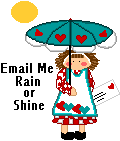![]()
The theme of a fable is its moral.
The theme of a parable is its teaching.
The theme of a piece of fiction is its view about life and how people behave.
In fiction, the theme is not intended to teach or preach. In fact, it is not presented directly at all. We extract it from the characters, action, and setting that make up the story. In other words, We must figure out the theme ourselves.
Finding the Theme
Answering the following Questions will Help us to uncover the theme in a story:
1- What does the title tell us ?
Moral and Theme
The controlling idea or central insight of a story is its theme. It is the underlying or philosophical idea that the story conveys.
Exploring themes increases our awareness of life, expands our horizons, and helps us feel truths of which we were only vaguely or intellectually aware.
To determine the theme of a story, we ask what insights into life or about human nature are revealed in the story.
Not all stories have a theme.
The purpose of a story is not to state a theme, but rather to verify it and bring it to life. By appealing to our intellect, emotions, senses, and imagination, authors help us discover and explore the themes within their stories.
Moral and Theme:
The words moral and theme are not interchangeable. Occasionally the theme of a story may be expressed as a moral principle, but usually the idea of a moral is too narrow to be used as a statement of theme.
The word theme is preferable for several reasons:
1- The objective of most fiction is to provide enjoyment, rather than to preach a sermon
2- In looking for theme, one does not look for a lesson
3- Interpretive fiction increases our awareness of life. The writer's purpose is not to inculcate a code or set of moral rules. The purpose is often to observe and to provoke thought.
To discover the theme of a story we should ask,
"What does the story reveal?" rather than "What does the story teach?"
Themes in interpretive fiction often challenge our beliefs and provide rather somber truths. A reader need not accept a theme that is contrary to his or her personal beliefs. However, any theme is worthy of consideration in that it is someone's view.
Principles of Stating a Theme:
A theme may be stated briefly or explored in length.
A rich story may offer several complex insights into
life .
When discussing theme, we should remember the following
guidelines:
1- There is no "right" or set way of determining theme.
Theme may be discovered by examining :
- changes to the protagonist;
- what the protagonist learned; or
- the nature of the conflicts.
2- A theme should be expressed in complete sentences. Single words such as "isolated" or "angry" are not adequate. A thematic statement presents an idea about the topic.
3- A theme should be stated as a generalization about life, society, or human nature. We shouldn’t refer to specific characters.
4- The theme generalization should not be larger than is justified by the details of the story.
5- Theme is the central unifying concept of a story. Therefore it must account for all the details in the story and not rely on supposed facts or assumptions from our own experience.
6- Theme should not be reduced to a cliché (an overused and unoriginal way of expressing an idea.).
 ..............Sign
My Guestbook !..............
..............Sign
My Guestbook !..............
